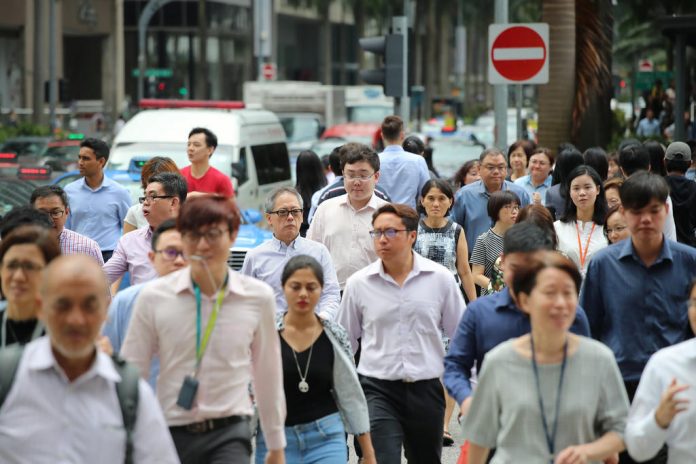85% of people use slang at work in Singapore, despite 75% thinking its inappropriate in the workplace
• 95% of Singaporeans use Singlish slang in some capacity, while 70% of the population also include Gen Z slang terms in their everyday conversations
• Expats in Singapore tend to use more Singlish slang than global Gen Z slang, with 91% saying they use Singlish colloquialisms in general conversation
• 85% of people in Singapore use slang at work, despite 74% of people thinking it’s inappropriate in an office environment
According to a new survey by the online tutoring platform Preply, 95% of people in Singapore use slang in some capacity. But, how does the country feel about slang? To find out, the survey of over 1,500 Singaporeans has revealed what types of slang people use, how often they use it in everyday conversation, and which situations they think slang is most (or least) appropriate.
95% of Singaporeans use Singlish slang in some capacity, while 70% of the population also include Gen Z slang terms in their everyday conversations. Despite one in five people saying slang annoys them, a huge 95% of people in Singapore say they use Singlish slang in some capacity, and 33% say they do so in most conversations. A further 70% also say they use global Gen Z slang.
The survey also looked at the reasons why people are using slang. One-third (35%) of Singaporeans say it helps them to communicate quickly, while 19% admit it’s because it’s popular. Interestingly, as many as 15% of expats say they use it to fit in.
In terms of where people in Singapore tend to pick up slang, the majority of people (65%) say they learn it from friends. Nearly half (47%) of residents also say they learn slang from the locals, and this goes up to 55% among expats.
Expats in Singapore tend to use more Singlish slang than Gen Z slang, with 91% saying they use Singlish colloquialisms in general conversation. Given they use slang to fit in, it perhaps makes more sense that expats tend to use more Singlish slang than global Gen Z slang. 91% use Singlish slang in conversation, while 20% say they never use Gen Z slang. Both versions of slang are popular among the younger generations in Singapore. Around 36% of those aged between 16 and 34 say they use Singlish slang in most conversations, while 22% of the over 55s say they use it very sparingly.
When it comes to Gen Z slang, 43% of 16 to 24 year olds say they use it in every or most conversations, while 61% of the over 55s in Singapore never use this type of slang.
85% of people in Singapore use slang at work, despite 74% of people thinking it’s inappropriate in an office environment
According to the survey, slang is most commonly used in more casual settings, such as when speaking with friends (84%) or family (60%). It makes sense then that 65% of people think slang is most appropriate at home. In fact, 61% of Singaporeans say they actually use it to connect with their children.
Despite 74% of people suggesting it’s inappropriate to use slang in an office environment, a huge 85% say they do use it at work. How likely people are to include slang terms in conversations at work does depend on who they’re speaking to though. 47% of those surveyed said they use it with co-workers, however just 12% of people would use it in front of their boss.
Sylvia Johnson, language expert at Preply, says, “While attitudes towards slang may vary across settings and generations, there’s no denying it has an important role in language and culture. Getting up to speed on the local slang is a big part of learning a language and fitting in with the locals. “However, our research has shown that 79% of people worry about using slang incorrectly, and a further 65% use slang without knowing what it means. With this in mind then, working with a language tutor can help you to stay up-to-date with the latest trends in speech and culture, no matter where you are in the world.”




















